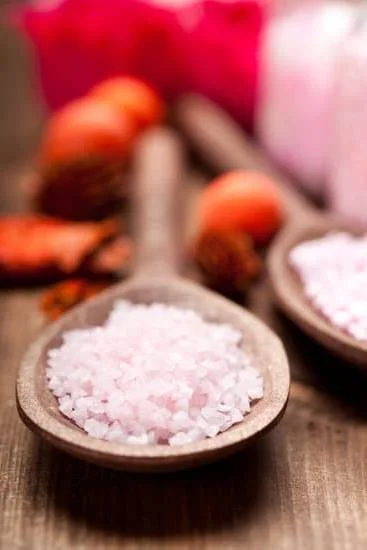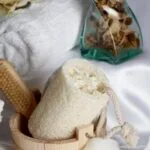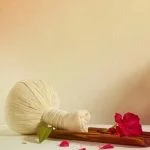Aromatherapy rose mask is becoming increasingly popular as a natural skincare solution for nourishing and rejuvenating the skin. Aromatherapy, the practice of using natural oils and scents to enhance well-being, has long been revered for its therapeutic benefits. The use of rose in aromatherapy, in particular, carries numerous advantages for both mind and body. When combined with a face mask, the aromatic and skin-nourishing properties of roses can provide a luxurious and effective skincare treatment.
Rose has been a staple in aromatherapy for centuries due to its calming and uplifting fragrance. In addition to its aromatic qualities, rose also offers an array of skincare benefits, making it an ideal ingredient for facial masks. From moisturizing dry skin to soothing inflammation, the use of rose in beauty rituals dates back to ancient civilizations.
Aromatherapy rose masks are not only pampering but also scientifically proven to be beneficial for the skin. The scent of roses can impact mood and emotions through aromatherapy, while the application of a rose mask can provide nourishment and antioxidant protection for the skin. This combination of sensory experience and skincare benefits makes aromatherapy rose masks a holistic approach to wellness and self-care.
History of Aromatherapy and Rose Mask
The use of aromatherapy and rose masks dates back to ancient civilizations, where the healing properties of plants and flowers were widely recognized. Aromatherapy, which involves the use of essential oils to improve physical and emotional well-being, has been practiced for centuries. The sweet, floral scent of roses has long been revered in aromatherapy for its calming and uplifting effects on the mind.
In ancient Egypt, roses were used in beauty rituals and skincare routines for their hydrating and anti-aging properties. The luxurious fragrance of roses was also highly treasured and often used in perfumes and ointments. In addition, ancient Greeks and Romans used rose petals to make fragrant oils for various purposes, including skincare and relaxation. These early civilizations understood the powerful influence of aromatherapy on both physical health and emotional balance.
The use of rose masks continued to be an integral part of beauty regimens throughout history, especially during the Renaissance period in Europe. Rose water and rose oil were commonly used in skincare formulations to promote a radiant complexion.
Beauty practices involving rose-infused products have withstood the test of time due to their ability to nourish, hydrate, and revitalize the skin. The rich history of aromatherapy rose masks serves as a testament to their enduring effectiveness in promoting overall skin health and wellness.
- Ancient Egypt: Roses used in beauty rituals
- Ancient Greece & Rome: Rose petals used for fragrant oils
- Renaissance period: Rose masks for radiant complexion
The Science Behind Aromatherapy Rose Mask
Aromatherapy is the practice of using natural plant extracts to promote health and well-being. Rose, in particular, has been used for centuries for its soothing and balancing properties. When it comes to skincare, the use of a rose mask can provide numerous benefits for the skin. The science behind aromatherapy rose mask lies in its ability to impact both the body and mind.
How Aromatherapy Works
Aromatherapy works through the inhalation or topical application of essential oils. When inhaled, the scent of roses can stimulate the olfactory system, which is directly connected to the brain. This can trigger emotional and psychological responses, leading to feelings of relaxation and reduced stress. When applied topically as a rose mask, the skin absorbs the beneficial properties of rose essential oil, providing nourishment and hydration.
The Impact of Roses on Mood and Emotions
The scent of roses has been shown to have a positive effect on mood and emotions. It is often associated with feelings of love, joy, and overall well-being. In aromatherapy, rose essential oil is known for its calming and uplifting effects, making it an ideal choice for those looking to unwind and de-stress. This makes using a rose mask not only beneficial for the skin but also for promoting a sense of relaxation during self-care rituals.
Skin Benefits of Using a Rose Mask
In addition to its aromatic properties, using a rose mask can also provide various benefits for the skin. Rose essential oil has anti-inflammatory and antioxidant properties, making it suitable for all skin types including sensitive or acne-prone skin. It can help in reducing redness, calming irritation, and protecting against environmental damage. Furthermore, the moisturizing properties of rose can help improve overall skin texture and tone when used as part of a regular skincare regimen.
Overall, understanding the science behind aromatherapy rose masks highlights their potential to not only improve one’s physical appearance but also contribute to mental well-being through their aromatic effects.
Types of Aromatherapy Rose Masks
When it comes to incorporating the benefits of aromatherapy and rose into your skincare routine, there are various types of rose masks available in the market. Each type offers unique properties and benefits for the skin, catering to different skin concerns and preferences. Here are some popular types of aromatherapy rose masks:
1. Cream Masks: Cream-based rose masks are rich in nourishing ingredients that provide deep hydration and moisture to the skin. These masks are perfect for those with dry or dehydrated skin, as they help to replenish lost moisture and improve skin elasticity.
2. Clay Masks: Rose clay masks are ideal for those with oily or acne-prone skin. The natural minerals found in rose clay help to purify and detoxify the skin, drawing out impurities and excess oil while minimizing the appearance of pores.
3. Sheet Masks: Sheet masks infused with rose essence are convenient and easy to use. They provide a quick and refreshing dose of hydration, making them suitable for all skin types. The sheet creates a barrier that allows the ingredients to penetrate deeply into the skin for maximum benefits.
DIY enthusiasts can also create their own aromatherapy rose mask using simple ingredients found at home. Here are two DIY recipes for at-home spa treatments:
– DIY Hydrating Rose Mask:
– Mix 2 tablespoons of plain yogurt with 1 teaspoon of honey.
– Add a few drops of rose essential oil and stir until well combined.
– Apply the mixture onto clean skin, leave on for 15-20 minutes, then rinse off with warm water.
– DIY Soothing Rose Clay Mask:
– In a small bowl, mix 1 tablespoon of rose clay powder with enough water or rose water to form a paste.
– Add 2 drops of lavender essential oil for extra calming effects.
– Apply an even layer onto the skin, allow it to dry completely, then rinse off with lukewarm water.
Whether you prefer purchasing ready-made rose masks or creating your own at home, incorporating this aromatic indulgence into your skincare routine can provide numerous benefits for your complexion while enhancing overall well-being.
How to Use Aromatherapy Rose Mask
Aromatherapy rose masks are a luxurious and effective way to pamper the skin and indulge in the therapeutic benefits of roses. When it comes to applying a rose mask, there are a few key steps to ensure that you get the most out of this self-care ritual.
First, start with a clean face. Use a gentle cleanser to remove any dirt, oil, or makeup from your skin. This will allow the rose mask to better penetrate and nourish your pores.
Next, carefully apply the aromatherapy rose mask to your face and neck. Be sure to follow the specific instructions provided with the product, as different masks may have varying application processes. Some masks may require you to leave them on for a certain amount of time, while others may need to be rinsed off after a few minutes.
While the mask works its magic, take some time to relax and enjoy the soothing scent of the roses. The aroma of roses has been known to have mood-enhancing properties, promoting feelings of calm and relaxation. Consider incorporating some deep breathing or meditation techniques during this time to fully immerse yourself in the aromatherapy experience.
Using an aromatherapy rose mask regularly can help improve skin hydration, texture, and tone over time. To maximize these benefits, consider using the mask 1-2 times per week as part of your skincare routine. Additionally, be sure to complement your masking ritual with other skincare products tailored to your unique skin concerns for a comprehensive approach to healthy-looking skin.
| Step | Action |
|---|---|
| 1 | Start with a clean face by using a gentle cleanser. |
| 2 | Carefully apply aromatherapy rose mask according to specific instructions. |
| 3 | Relax and enjoy soothing scent of roses during mask application. |
| 4 | Incorporate regular use of aromatherapy rose mask into skincare routine for best results. |
Benefits of Aromatherapy Rose Mask for the Skin
Aromatherapy rose masks offer a myriad of benefits for the skin, making them an essential part of any skincare routine. The use of aromatherapy in skincare involves the use of essential oils derived from plants to enhance both the physical and emotional well-being. When it comes to rose masks, the inclusion of rose oil or rose water provides a range of advantages for the skin.
Nourishing and Moisturizing Properties
One of the key benefits of using a aromatherapy rose mask is its nourishing and moisturizing properties. Rose oil has natural emollient properties that help to lock moisture into the skin, making it an ideal choice for those with dry or dehydrated skin. Additionally, the vitamins and antioxidants found in rose oil can nourish and rejuvenate the skin, leaving it soft, supple, and radiant.
Anti-Inflammatory and Antioxidant Benefits
Rose oil is known for its anti-inflammatory and antioxidant properties, making it beneficial for soothing irritated or inflamed skin. The anti-inflammatory nature of roses can help reduce redness and calm conditions like rosacea or eczema. Furthermore, the antioxidants in roses can protect the skin from damage caused by free radicals, helping to maintain a youthful appearance and prevent premature aging.
Improvement in Skin Texture and Tone
Regular use of an aromatherapy rose mask can lead to improvements in skin texture and tone. The natural astringent properties of roses can help tighten pores and firm the skin, resulting in a smoother complexion. Additionally, the gentle exfoliating action of some rose masks can aid in removing dead skin cells, promoting cell turnover, and revealing brighter, more even-toned skin.
Overall, adding a aromatherapy rose mask to your skincare routine can provide a wide array of benefits for your skin’s health and appearance.
Aromatherapy Rose Mask Routine
Incorporating a rose mask into your skincare routine can provide numerous benefits for your skin and overall well-being. The aromatherapy rose mask, specifically, offers not only the skin benefits of using rose but also the soothing and calming effects of aromatherapy. Whether you’re looking to pamper yourself with a luxurious spa treatment at home or to improve the condition of your skin, adding a rose mask to your routine can be incredibly beneficial.
To start, it’s important to determine how often you should use a rose mask. Depending on your skin type and specific concerns, you may choose to use a rose mask once or twice a week.
For those with dry or mature skin, incorporating a rose mask into your routine more frequently can help nourish and hydrate the skin. On the other hand, individuals with oily or acne-prone skin may benefit from using a rose mask less frequently as part of their skincare routine.
When applying an aromatherapy rose mask, it’s essential to cleanse your face thoroughly beforehand. This ensures that the natural properties of the roses can penetrate deeply into the skin without any barrier. The process of applying the mask itself can also serve as an opportunity for relaxation and self-care. Take this time to unwind and allow the scent of roses to envelop you in its calming aroma.
After rinsing off the rose mask, it’s crucial to follow up with other skincare products that complement its benefits. This may include serums, moisturizers, and facial oils that further enhance the nourishing and rejuvenating effects of the rose mask. By incorporating a consistent aromatherapy rose mask routine into your overall skincare regimen, you’ll be taking proactive steps towards achieving healthier, smoother, and more radiant-looking skin.
Conclusion
In conclusion, the use of aromatherapy rose masks can be a wonderful addition to anyone’s self-care routine. As discussed, aromatherapy has been used for centuries to improve both physical and emotional well-being, and incorporating rose into this practice can provide numerous benefits. The science behind aromatherapy explains how the scent of roses can positively impact mood and emotions, while also offering skin nourishment and anti-inflammatory properties.
Whether utilizing commercially available rose masks or creating DIY recipes at home, individuals can experience the moisturizing and antioxidant benefits of roses on their skin. The routine application of a rose mask can improve skin texture, tone, and overall health. By adding a rose mask to their skincare regimen, individuals have the opportunity to enhance not only their physical appearance but also uplift their spirits through the calming aroma of roses.
In closing, I encourage readers to explore the use of aromatherapy rose masks as a form of self-care. By taking the time to incorporate this practice into your routine, you are investing in your overall wellness. Let the power of aromatherapy and the beauty of roses uplift your spirit and rejuvenate your skin. Embrace the benefits that come with using a rose mask and enjoy the luxurious experience it brings to your daily skincare routine.
Frequently Asked Questions
What Is Rose Clay Mask Good For?
Rose clay mask is good for purifying and detoxifying the skin. It helps to draw out impurities, minimize pores, and improve overall skin texture. This type of mask is also known for its calming and soothing properties.
How Long Do You Leave a Rose Petal Clay Mask on Your Face?
For a rose petal clay mask, it’s generally recommended to leave it on your face for about 10-15 minutes. This allows the mask to dry and work its magic without over-drying or irritating your skin. However, always follow the specific instructions provided with the product you are using.
How Do You Make Essential Oil Face Mask?
To make an essential oil face mask, start by selecting a carrier oil such as jojoba or coconut oil, and then add a few drops of your chosen essential oil like lavender or tea tree oil. Mix the oils together and then apply the mixture to your clean face, leaving it on for 10-15 minutes before rinsing off with warm water.
Always do a patch test before applying any new mixtures to your face to prevent potential adverse effects on the skin.

Are you looking for a natural way to improve your health and wellbeing?
If so, aromatherapy may be the answer for you.





